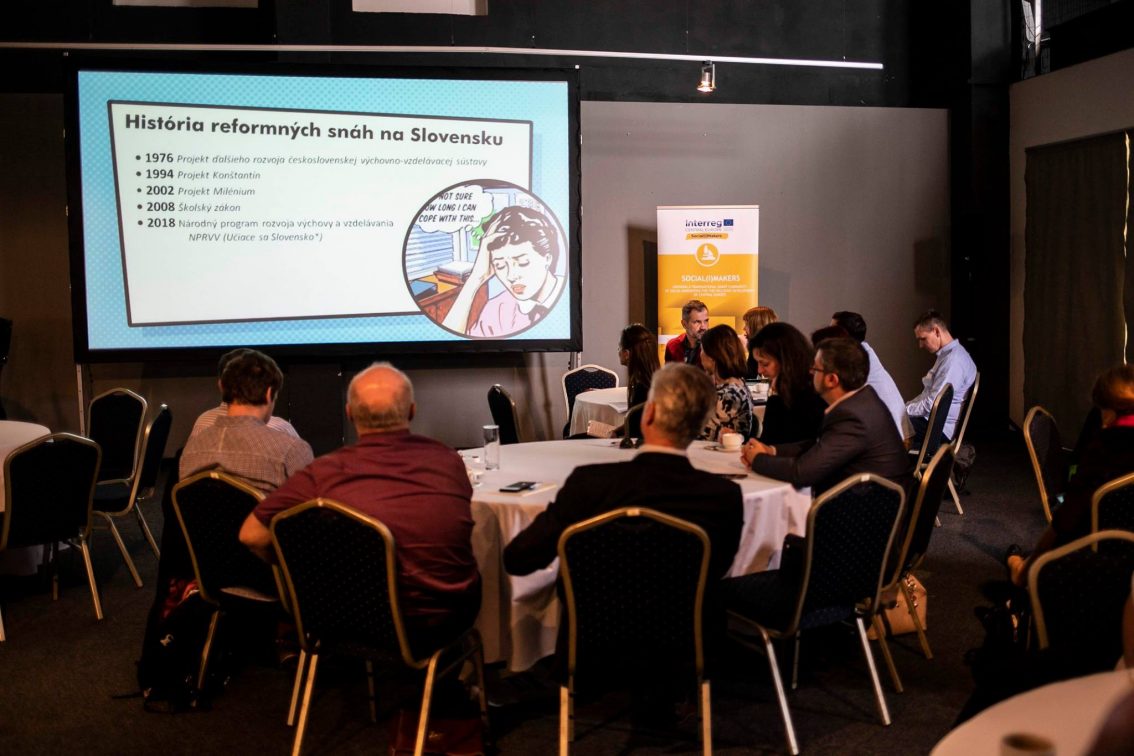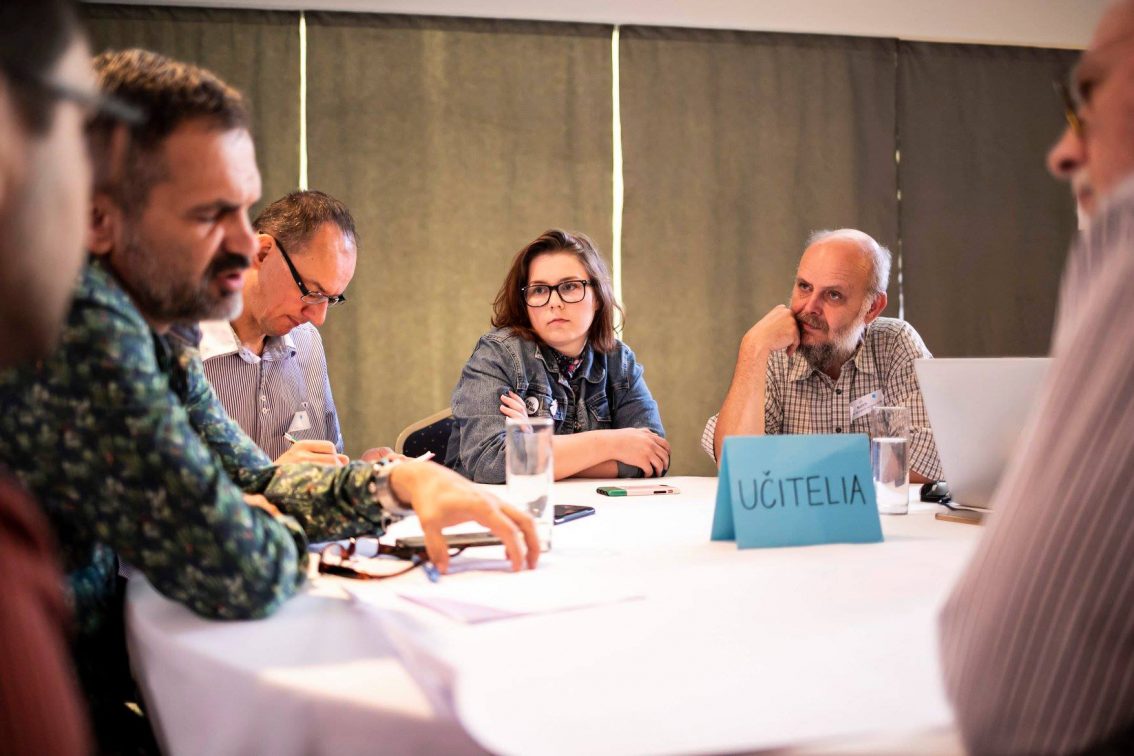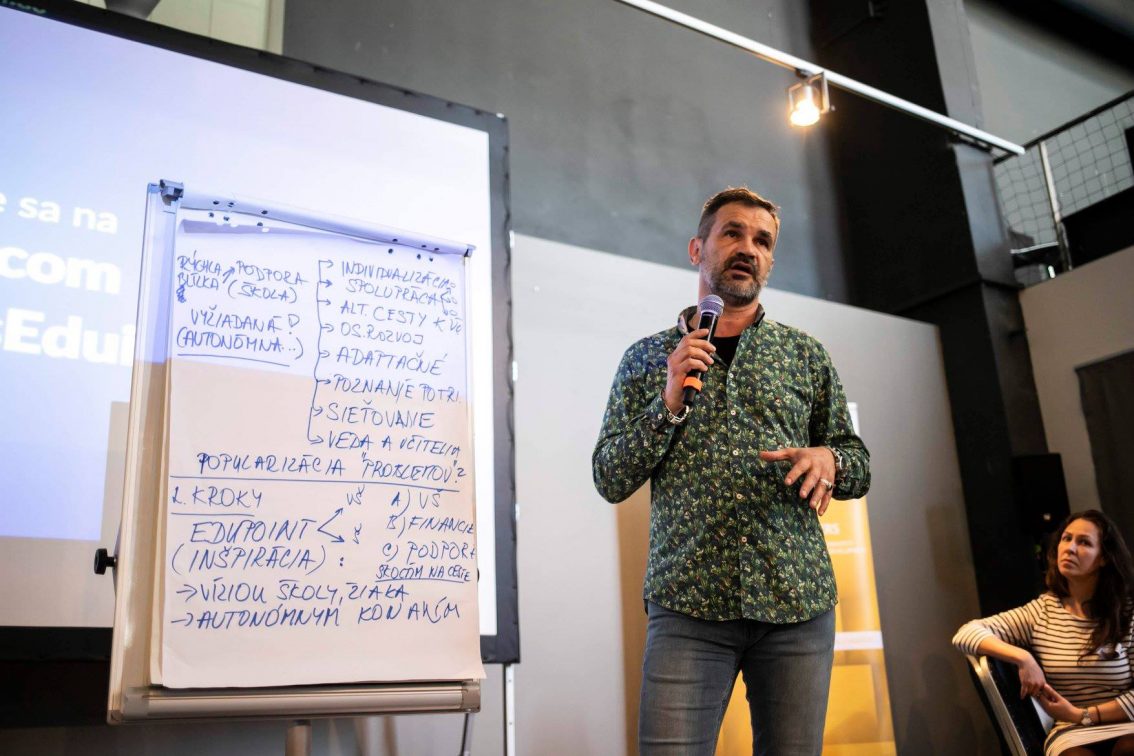How to Achieve Societal Changes in Education
Instead of a reform, support and assistance to principals and teachers.
Society is changing rapidly and education should react to this. For a long time, attempts have been made in the Czech Republic and Slovakia for partial or complex changes which would lead to modern education. More than 50 leaders in education from the Czech Republic and Slovakia met to assess the progress, achievements and failures of the path leading to systemic changes in education. What did the meeting bring?
The two-day event aimed to identify gaps in the process of improving education and to find common solutions for creating a supportive environment in education and schools. The intention was to open a discussion for cooperation so that the steps to change education are linked to each other and work well together.
What tools can we use to change education?
At the meeting, the first step was to compare Slovak and Czech successful educational innovations and to identify the most effective tools that contribute most to better education and public participation. Discussions have shown that it is the support of both school principals and teachers at the same time that is crucial to triggering changes in education.
One of the proposed measures was the so-called personalisation of the selection of school principals in accordance with the needs of the region and the children’s needs. For this purpose, a school founder should carry out a needs assessment of the school. Based on this assessment, it is then possible to decide what attributes the new school principal should have.
To support school principals and teachers, the participants proposed the creation of regional support centres. Ideally, the centres would operate based on “bottom-up” needs and would be funded “top-down” by the ministry. Besides methodological support and support services for educators and school principals, the centres would also provide shared services – a concept which would address the shortage of staff in education. Special educators, bilingual assistants and subject-specific teachers would thus be available to support several schools in the region.

How to work together to change the school environment?
The second part of the meeting was conducted using the world café method – the participants deliberately split into small teams, thematically divided according to the target groups – pupils, teachers, school principals, school founders, state administration, and parents. Together, they discussed how they should collaborate to change the school environment.
One of the key topics discussed in the group of school principals, but also the group of pupils, was the issue of what school principals we want to have. It turns out that due to a high number of responsibilities, the school principals must understand that many of the duties can be delegated to their teams. It helps build trust in the whole team, which then reflects at all levels. It is, therefore, crucial to lead school principals to participatory management.
Another important factor supporting the transformation of the school environment is to provide opportunities for the personal and professional development of teachers. In this case, we are not talking only about the development of the individual, but also of the whole team.

For changes in education, communication among the civic sector and the state administration or the school founders is essential. “It often happens that what is discussed and argued at the central level does not translate into practice and results. Therefore, there is a huge space for the civic sector which can fill this gap by concrete solutions,” adds Miroslav Hřebecký from EDUin.
The conclusions of the joint Czech-Slovak event will be used in the Generation 3.0 programme of the Pontis Foundation and the activities of EDUin. “The problem is that the innovative educational approaches offered and disseminated by civic organisations are used only by a limited number of schools. For us, the outcomes of this meeting should form the basis for coordinating activities towards schools, founders and government,” says Norbert Maur from the Pontis Foundation. The conclusions will also serve to set up further steps to support school principals and teachers.

This event was held as part of a joint activity of the Pontis Foundation as part of the Generation 3.0 programme and the European project Social(i)Makers in cooperation with the partner organisation from the Czech Republic EDUin – Education Information Centre. The Social(i)Makers project is implemented as part of the Interreg Central Europe programme, supported by the European Union through the European Regional Development Fund.


